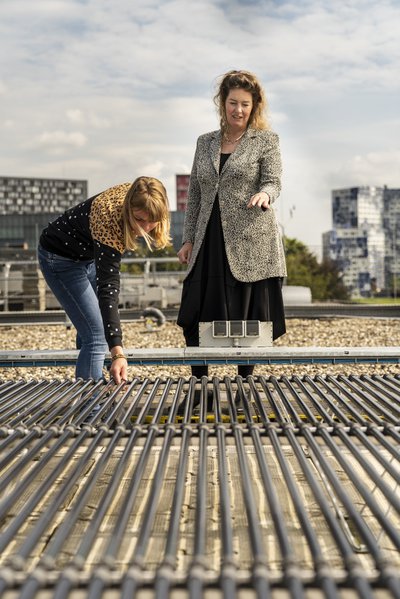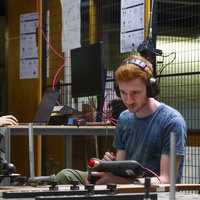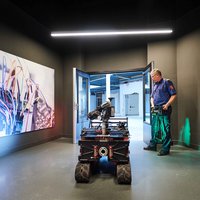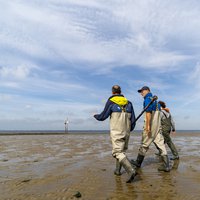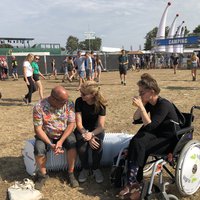Applied research
Universities of applied sciences in the Netherlands carry out applied research which arises from issues or problems in practice. The outcomes of applied research are knowledge, greater understanding, prototypes, products and services that support innovation in professional practice and the solving of social issues. The research also strengthens the quality of higher vocational education.
University of applied sciences
Universities of applied sciences are institutions of higher education and applied research. As such, they have an important place in the Netherlands’ knowledge and innovation system.
The institutions have vocational study programmes, where students learn how to apply their theoretical knowledge in practice. Work placements and internships in national and international organisations often form an integral part of their degree programmes.
Research at universities of applied sciences is practice-oriented and is done in collaboration with professional practice. The research strengthens the quality of higher vocational education. This web page describes the structure of the applied research further down below.
36 universities of applied sciences
There are currently 36 universities of applied sciences in the Netherlands. The subjects taught and the fields of research include economics, engineering, agri and food, healthcare, art, social studies and primary and school teacher training.
Doing research in and with practice
The most important feature of the applied research done in universities of applied sciences is that the research subject emerges from practice. The research is done in and with practice.
The research covers a wide range of subjects taught at the universities of applied sciences and is often multidisciplinary. This gives rise to practical and smart solutions for societal issues.
Collaboration
Universities of applied sciences work closely with small and medium sized enterprises and/or with the public sector. This is already being done nationally and is increasingly being done with international partners.
Universities of applied sciences collaborate with each other and with other knowledge institutions such as national and international universities and knowledge institutes.
Impact
The research in and with professional practice generates knowledge and outcomes that are embedded in practice. The knowledge also flows into the curricula at the universities of applied sciences through the research groups, professors and teachers. We call this ‘impacting professional practice and education’, or ‘doorwerking’ in Dutch.
Cultivating a questioning attitude in future professionals
Students involved in research projects develop a questioning and critical attitude that is important for their future professional practice. Applied research strengthens the quality of the higher vocational education as a whole. It gives the students access to the latest knowledge and through them, that knowledge finds its way back into practice.
Research group
Professors
Applied research is supervised by professors who are at the interface of education, research and professional practice. The professorships and lectorates were created in 2001 and since then the number of professors at universities of applied sciences has grown steadily.
There were fewer than 300 in 2007, and by 2023 there were 772 professors. The scale of the lectorates is also increasing, both in terms of staffing and funds (source: Rathenau Institute).
Lectorates
The lectorates underpin applied research. Each lectorate consists of one of more professors, teacher researchers, PhD candidates and support staff. They sometimes involve external experts too. Each lectorate focuses on one theme, such as technology in healthcare or the energy transition in urban areas.
Platforms, Centres of Expertise, Labs
Lectorate platforms
Professors are increasingly collaborating on expertise and theme-based platforms. These platforms are open and active places of collaboration and they work towards a joint multi-year research programme. They allow the professors to coordinate and jointly take part in national and international research programmes.
Centres of Expertise
Centres of Expertise are alliances in which universities of applied sciences, companies, government and other public bodies innovate, experiment and invest. Centres of Expertise bring about future-proof higher vocational education and innovation in professional practice. There are currently 52 Centres in the Netherlands. These are listed on Katapult’s website.
Labs and placements
Labs – or Living Labs – and placements allow students, researchers, companies and institutes to jointly work on developing knowledge and innovation. This is done in real-life experimental environments such as urban neighbourhoods, companies, institutes or shared laboratories or science parks.
Universities of applied sciences also carry out research at festivals. Regieorgaan SIA has a special subsidy to facilitate this. It works with Innofest to enable researchers to test their prototypes at festivals such as the Zwarte Cross and Into The Great Wide Open.
Quality assurance
Universities of applied sciences have collaborated on the quality assurance of applied research since 2007. The first Brancheprotocol Kwaliteitszorg Onderzoek (research quality assurance protocol, BKO) was established in 2009 and was updated in 2022 for 2023-2028. The BKO is only available in Dutch.
Funding of applied research
Universities of applied sciences are funded by the Ministry of Education, Culture and Science. This Government funding is the primary source of funding.
Secondary sources of funding can be obtained from organisations such as Regieorgaan SIA and ZonMw. Regieorgaan SIA also receives funding from the Ministry of Education, Culture and Science as well as other government agencies or knowledge institutions.
The funds that Regieorgaan SIA receives from the Ministry of Education, Culture and Science come through these bodies which divide the funds across universities of applied sciences for their research.
Tertiary sources of funding come from industry or local government, which are often partners in the applied research.

